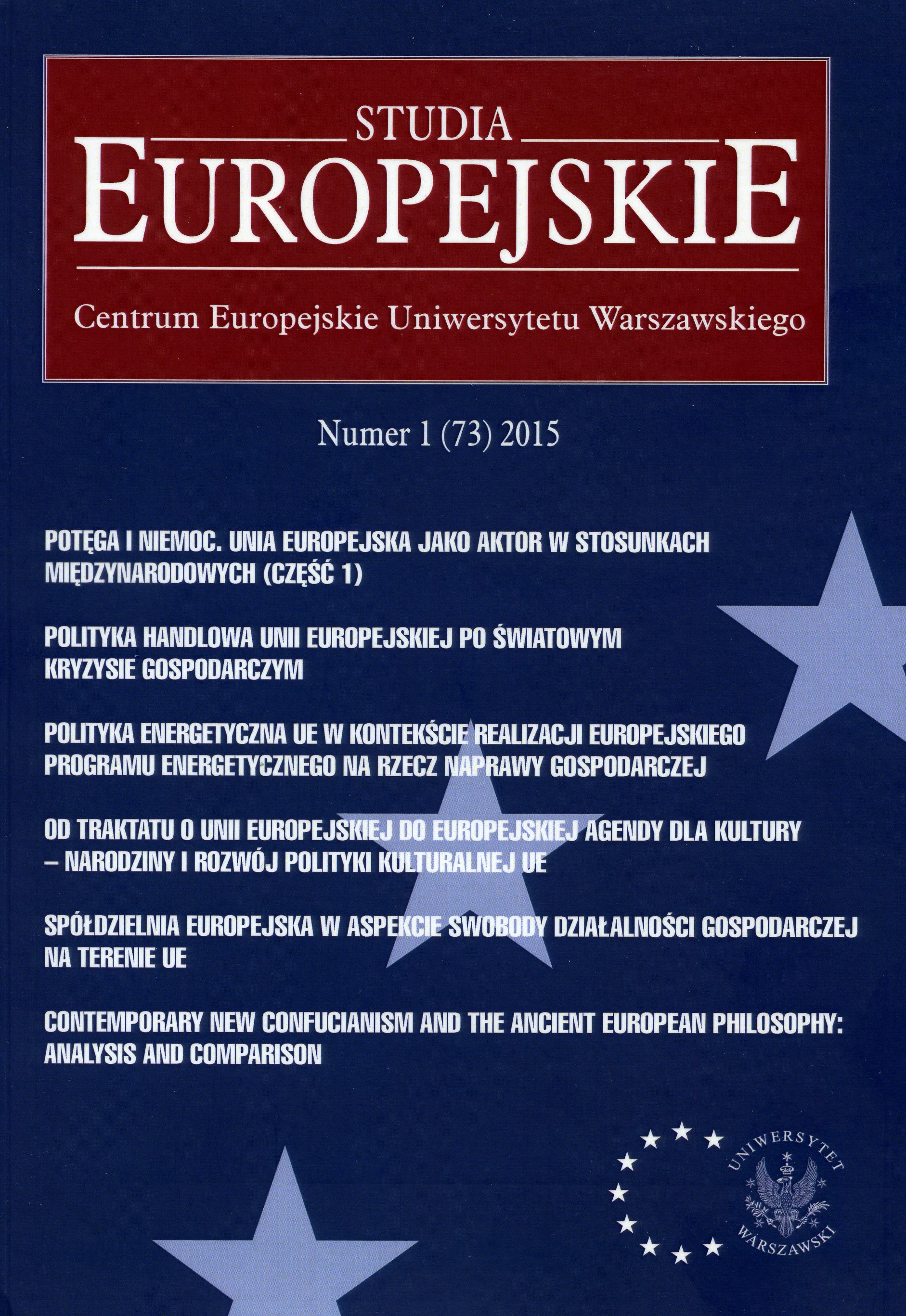Contemporary New Confucianism and the Ancient European Philosophy: Analysis and Comparison
Contemporary New Confucianism and the Ancient European Philosophy: Analysis and Comparison
Author(s): Hanzhen LiuSubject(s): Ancient Philosphy, East Asian Philosophy, Culture and social structure
Published by: Centrum Europejskie Uniwersytetu Warszawskiego
Keywords: europe; philosophy; confucianism
Summary/Abstract: Looking back, both of the two great ancient civilizations in the world, China in the East and Greece in the West, benefitted from philosophies that evolved almost simultaneously: Taoism and Mo-Tzu Confucianism in the East, and the trilogy of Socratic, Platonic, and Aristotelian thought in West. This exploration of philosophy in Europe, from the movement into the Renaissance in the fifteen century in Italy to industrialization in the eighteen century in England, the ancient Greek civilization blossomed, and the value of the different philosophical thoughts and opinions concerning the livelihood of mankind and demands on the human being were honed until they reached the achievement of democracy. In China, by contrast, over several thousand years from Huang Di to the latest pres¬ident Xi Jinping, Confucian principles remained constant for the most part, with President Xi declaring at the first meeting at which he officially presided in November 2012 that “we are undertaking our Renaissance.”33 It is very late in the course of human history to proclaim it, and this re¬flects that China lags behind the Western world. The reason for this is that the autocratic values of Confucian thought have remained constant and not changed into the democratic values of Socrates, Plato and Aris¬totle that in turn precipitated more modern philosophical thoughts and forms of governance during and since the Renaissance.
Journal: Studia Europejskie
- Issue Year: 19/2015
- Issue No: 1 (73)
- Page Range: 115-136
- Page Count: 21
- Language: English

